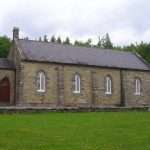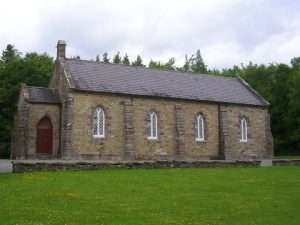Sermon for Christmas Eve, 24th December 2016
” . . . to you is born this day in the city of David a Saviour, who is the Messiah, the Lord.” Luke 2:11
It has been a year when it has been almost impossible to avoid political news – in the United States, in Europe, in the Middle East – our human desire for power has filled the news headlines. The story of the birth of the baby at Bethlehem reminds us that politicians and elections, campaigns and votes, wars and conflicts, take place in a world we believe is ruled by God.
When we read Saint Luke Chapter 2 we see Luke starts his story by talking about the whole world and then his telling of what happens becomes more and more local until we reach a few fields on a Judean hillside.
The story begins in Verse 1, “In those days a decree went out from Emperor Augustus that all the world should be registered.” Saint Luke’s readers would have known the esteem in which Roman emperors held themselves; citizens were to consider their emperor as divine, as a god. Saint Luke’s readers would have known also that there was only one God, only one creator of the heavens and Earth. However, Augustus had regarded himself, Christians believed in only one ruler of all the world. As people read Saint Luke’s tale of that first Christmas decades after it all happened, they did so in the knowledge that the Emperor Augustus had come and gone, but that the baby born in Bethlehem had become the greatest of kings.
Looking at the world in which we live, have we confidence that, whatever happens, God is ruler of all? When we watch the television, do we think that this is God’s world and that we are God’s people and that we should be seeking his Kingdom and his righteousness? How much different would 2016 have looked if we had sought after Jesus’ way of doing things?
The story begins with “all the world” and then it moves down to the level of a nation. Verse 2 says, “This was the first registration and was taken while Quirinius was governor of Syria.” Nations in Jesus’ time were not nations in the way we think of them now, but even two thousand years ago they were about power and influence and wealth. Power was exercised without thought of who might suffer, it was exercised at the whim of the rulers. Powerful rulers would have had no concern about who might suffer because of the census. Joseph and Mary, making the hard journey from Nazareth to Bethlehem, must have felt they were people who just did not count.
Does the way countries are run matter to God? Scripture says it does: “Righteousness exalts a nation,” says Proverbs Chapter 14 Verse 34. When we look at our own country, do we see God’s righteousness? Or do we see people being treated as Joseph and Mary were treated? Mary and Joseph ended up in a cattle shed, visited only by shepherds; this Christmas Eve, two thousand years later, there are still people who are homeless. Jesus tells his disciples in Saint Matthew Chapter 25 that people will be judged on their response to the poor, how will our nation be judged?
Beginning with “all the world,” the story moves to the nation of Syria, and then moves to local communities. Saint Luke Chapter 1 Verse 4 says, “Joseph also went from the town of Nazareth in Galilee to Judea, to the city of David called Bethlehem, because he was descended from the house and family of David.” Travelling from the community that had been home, Joseph and Mary walk the ninety kilometres to Bethlehem. A community Bethlehem may have been, welcoming it was not. No matter how full the town may have been, surely there would have been a room in someone’s house where a heavily pregnant teenager might have found somewhere to rest? How hard-hearted were people who turned them from their doors and left them in a shed?
If our response to strangers is a measure of how faithful we are to Jesus, then how faithful to Jesus is our own community? We read about Jesus’ ministry and we see him finding time for everyone, we see him caring about the people with whom no-one else bothered, we see him healing people who had been rejected by their own communities. Do we follow the example of Jesus?
The world, the nation, the community; finally, we reach the people’s own place. Verse 8 tells us, “In that region there were shepherds living in the fields, keeping watch over their flock by night.” We are not given the location of the fields, they are just in “that region.” The place is anonymous, undistinguished, ordinary, but it is in a place that doesn’t even have a name that the angels come to bring good news to the shepherds. Saint Matthew Chapter 1 Verse 23 tells us, “they shall name him Emmanuel’, which means, ‘God is with us.'” God is with the humblest, the most obscure, poor people.
We believe in God as Lord of all the world. We believe our nation must answer to God for the way it conducts its life. We believe our communities should be places that follow the example of Jesus. These things begin with our own faith in Jesus, our own faith in God with us. The Christmas story says to us that no matter who we are, we are people of infinite worth to God because he sends his own Son for us. “To you is born this day in the city of David a Saviour, who is the Messiah, the Lord.” This Christmas, have we a place for him in our lives?



Comments
Sermon for Christmas Eve, 24th December 2016 — No Comments
HTML tags allowed in your comment: <a href="" title=""> <abbr title=""> <acronym title=""> <b> <blockquote cite=""> <cite> <code> <del datetime=""> <em> <i> <q cite=""> <s> <strike> <strong>